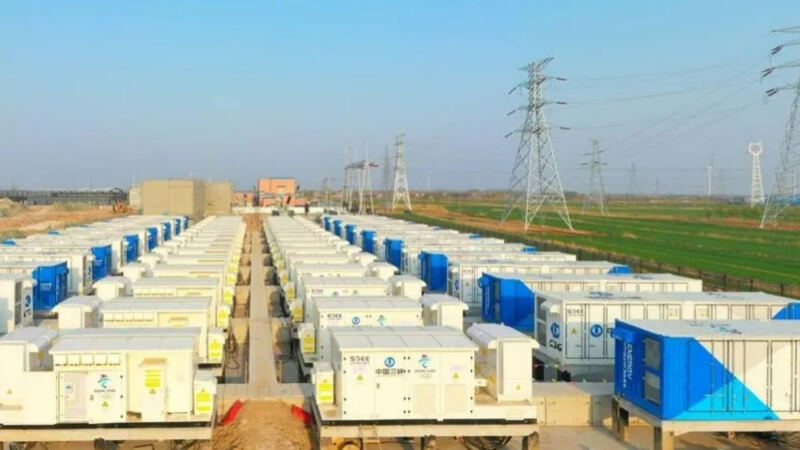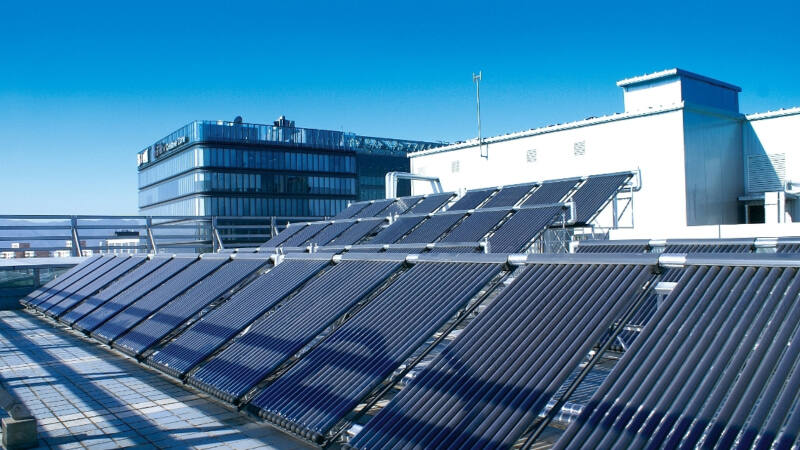Porozumění revoluci ve sluneční energetice
Integrace bateriové sluneční úložiště zásadně změnila způsob, jakým využíváme a využíváme sluneční energii. Vzhledem k přechodu světa k obnovitelným zdrojům energie se stala schopnost efektivně ukládat solární energii stále důležitější. Systémy bateriového solárního uskladnění představují chybějící článek mezi občasnou výrobou solární energie a spolehlivým, nepřetržitým dodávkám energie.
Moderní solární instalace v kombinaci s pokročilými systémy ukládání energie revolucionalizují správu elektrické energie jak pro domácnosti, tak pro komerční provozy. Tyto systémy nejen zachycují sluneční energii v době špičkové produkce, ale umožňují její využití kdykoli je potřeba, čímž efektivně řeší jednu z největších výzev solární energie – její proměnlivost.
Základní komponenty solárních systémů s bateriovým úložištěm
Pokročilé technologie baterií
V jádru solárních bateriových úložných systémů stojí sofistikované bateriové technologie, z nichž vedoucí pozici zaujímají lithiové-iontové baterie. Tyto pokročilé systémy skladování nabízejí vyšší hustotu energie, delší životnost a lepší účinnost ve srovnání s tradičními olověnými akumulátory. Vývoj bateriových technologií výrazně snížil náklady a zároveň zvýšil kapacitu ukládání, čímž se skladování solární energie stalo dostupnějším jak pro domácnosti, tak pro podniky.
Moderní bateriové systémy zahrnují chytré funkce, jako je termální management, pokročilé možnosti monitorování a ochranné mechanismy, které zvyšují jejich odolnost a výkon. Tyto technologické vylepšení prodloužily životní cykly baterií při zachování optimálních provozních podmínek, čímž zajišťují spolehlivé ukládání energie na následující roky.
Integrace a řídicí systémy
Sofistikovanost solárního úložiště baterií sahá dál než samotné baterie. Pokročilé měniče a chytré řídicí systémy bezproblémově řídí tok energie mezi solárními panely, bateriemi a spotřebou v domácnosti. Tyto inteligentní systémy optimalizují cykly nabíjení a vybíjení, maximalizují efektivitu využití uložené energie a zároveň chrání dlouhou životnost baterie.
Moderní integrované systémy také poskytují možnosti sledování v reálném čase a dálkového řízení, které umožňují uživatelům sledovat výrobu, uskladnění a spotřebu energie. Tato úroveň kontroly umožňuje informovanější rozhodování o využití energie a pomáhá optimalizovat celkový výkon systému.
Ekonomické výhody solárních bateriových systémů
Snížení nákladů na energii
Solární bateriové systémy nabízejí významné finanční výhody tím, že umožňují uživatelům maximalizovat svou investici do solární energie. Ukládáním přebytku energie vyrobené v době slunného počasí mohou domácnosti i podniky výrazně snížit závislost na síťové elektřině v době špičkových sazeb, čímž dosáhnou nižších účtů za elektřinu.
Možnost ukládání energie také poskytuje ochranu proti růstu cen energie a umožňuje účast na energetickém arbitráži – ukládání energie v době nízkých sazeb a její využití v době sazeb vysokých. Tento strategický přístup ke správě energie může v průběhu času vést k významným úsporám.
Výnosy z investic a pobídky
Finanční výhody bateriového solárního úložiště se stávají čím dál přesvědčivějšími díky vládním pobídkám, daňovým zvýhodněním a programům slev v mnoha oblastech. Tyto finanční podpory spolu s klesajícími náklady na technologie zkracují dobu návratnosti investic do bateriových úložných systémů.
Nadto některé energetické společnosti nabízejí speciální tarify nebo programy pro zákazníky s bateriovými úložnými systémy, které poskytují dodatečné příjmové toky prostřednictvím služeb pro síť nebo programů řízení poptávky. Tyto příležitosti dále zvyšují ekonomické výhody investice do bateriového solárního úložiště.
Ekologický dopad a udržitelnost
Redukce uhlíkové stopy
Bateriové solární úložiště hraje klíčovou roli při snižování emisí uhlíku tím, že umožňuje větší využití čisté sluneční energie. Když lze více solární energie efektivně ukládat a využívat, snižuje se závislost na elektrické energii ze sítě založené na fosilních palivech, čímž se přímo přispívá ke snížení emisí skleníkových plynů.
Environmentální výhody sahají dál než pouhé snižování uhlíku. Díky efektivnějšímu využívání obnovitelných zdrojů energie systémy bateriového skladování pomáhají snižovat potřebu špičkových elektráren a dalších zdrojů s vysokou úrovní emisí, které tradičně řídí kolísání poptávky v síti.
Udržitelné energetické manažerské řízení
Zavedení solárních bateriových úložišť podporuje širší cíle udržitelnosti tím, že podporuje energetickou nezávislost a odolnost. Tyto systémy umožňují komunitám vyvíjet mikrosítě a snižovat jejich dopad na životní prostředí, a přitom zachovávají spolehlivý přístup k elektrické energii.
Navíc jsou vyvíjeny pokročilé programy recyklace baterií, které řeší otázky týkající se konce životnosti, čímž je zajištěno, že environmentální výhody solárního skladování budou platit po celou dobu životního cyklu technologie.

Budoucí trendy a inovace
Vznikající technologie
Sektor bateriových solárních úložišť se dále vyvíjí s nadějnými novými technologiemi na obzoru. Vyvíjejí se stacionární baterie, průtokové baterie a další inovativní řešení pro ukládání energie, která mají nabídnout ještě vyšší účinnost, delší životnost a lepší bezpečnostní vlastnosti.
Výzkum nových materiálů a výrobních procesů naznačuje, že budoucí bateriové systémy budou cenově dostupnější, udržitelnější a schopné ukládat ještě větší množství energie. Tyto pokroky dále urychlí přijetí solárních úložných řešení v různých aplikacích.
Integrace do sítě a chytré systémy
Budoucnost bateriových solárních úložišť spočívá v lepší integraci do sítě a stále sofistikovanějších systémech správy energie. Virtuální elektrárny, optimalizace řízená umělou inteligencí a pokročilé služby pro síť rozšiřují možnosti a hodnotovou nabídku úložných systémů.
Tyto vývojové trendy připravují cestu pro odolnější a flexibilnější energetickou síť, ve které decentrální bateriové úložiště hrají klíčovou roli při udržování stability sítě a umožňují vyšší podíl obnovitelných zdrojů energie.
Nejčastější dotazy
Jak dlouho solární baterie obvykle vydrží?
Moderní systémy solárního bateriového úložiště obvykle vydrží mezi 10 až 15 lety, v závislosti na vzorcích používání a údržbě. Většina výrobců nabízí záruku po dobu 10 let nebo určitého počtu nabíjecích cyklů, podle toho, co nastane dříve. Pravidelné monitorování a řádná údržba mohou výrazně prodloužit životnost baterií.
Jakou velikost bateriového úložného systému potřebuji?
Ideální velikost systému solárního bateriového úložiště závisí na několika faktorech, jako je denní spotřeba energie, kapacita solárních panelů a cíle ohledně energetické nezávislosti. Typický domácí systém může mít kapacitu mezi 10 až 20 kWh, zatímco komerční instalace mohou vyžadovat podstatně více.
Může bateriové úložiště fungovat během výpadků elektrické energie?
Ano, bateriové solární úložné systémy mohou poskytovat záložní napájení během výpadků sítě, pokud jsou správně nakonfigurovány s vhodnými přepínacími spínači a měniči. Pro tuto funkci jsou však nezbytné konkrétní návrh systému a komponenty, proto je důležité projednat požadavky na záložní napájení již během počátečního plánování systému.

